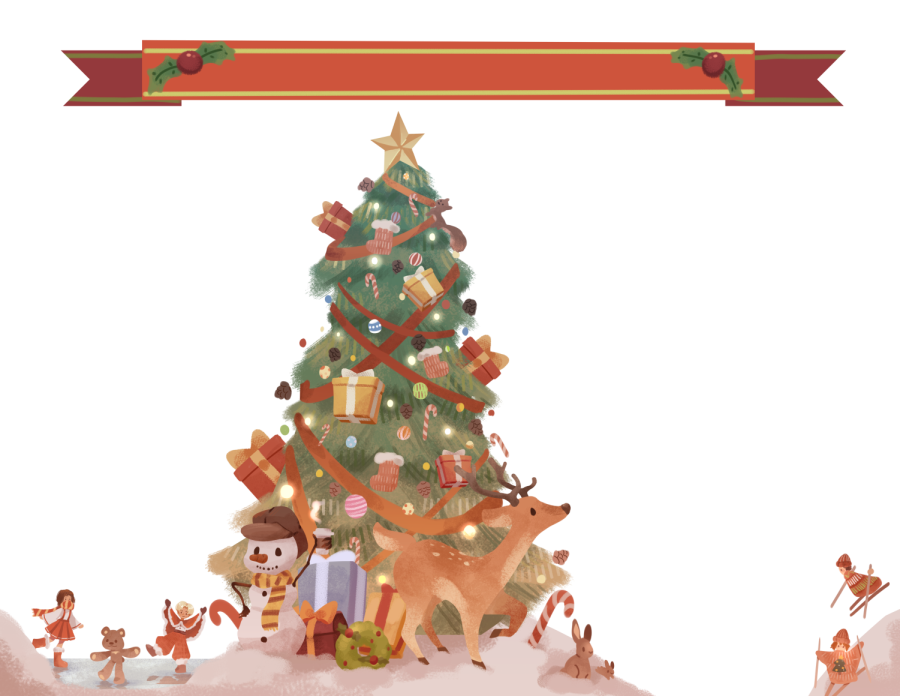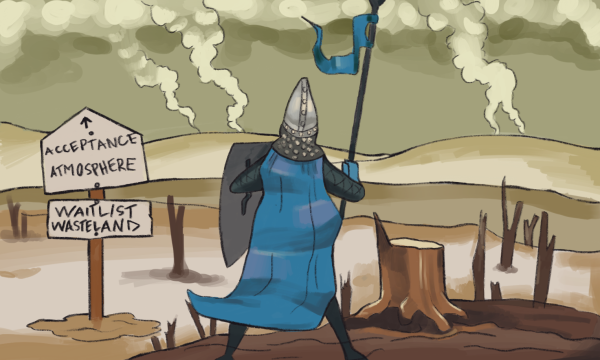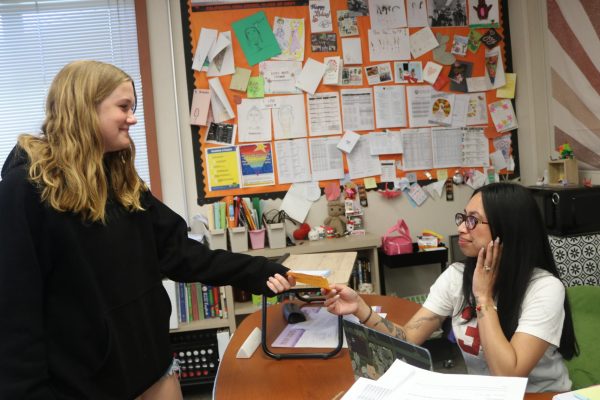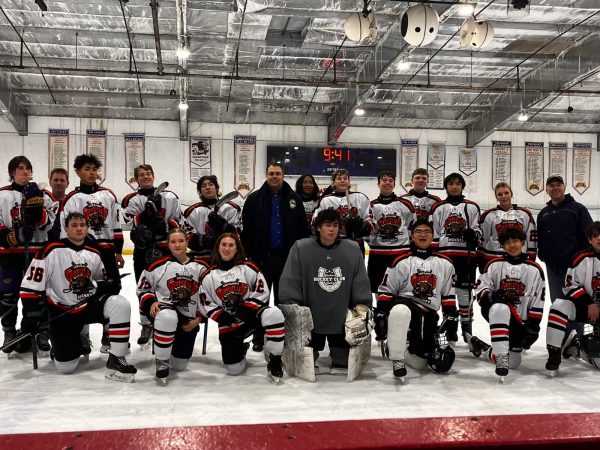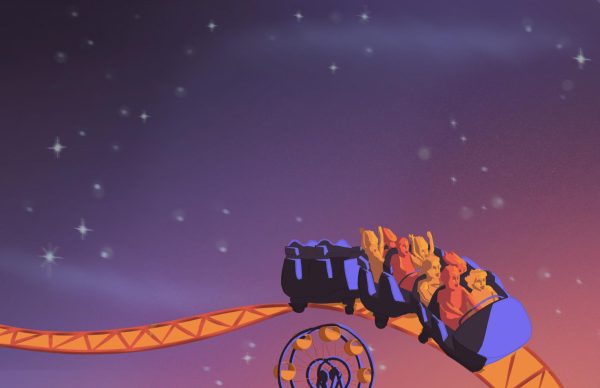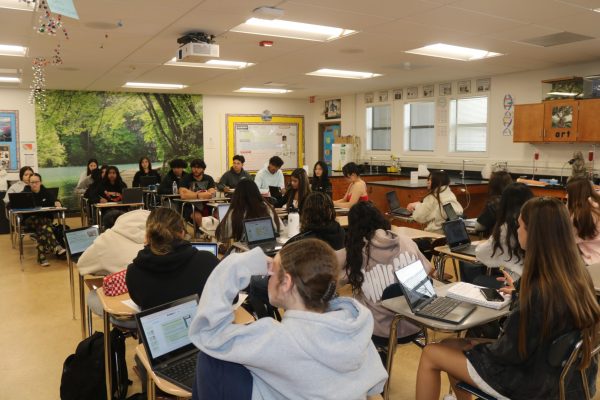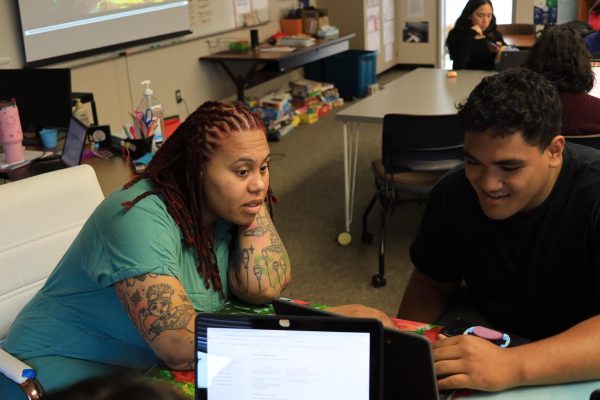With no snow in San Ramon, students still try to make it feel like the holidays
Traditional games, activities, and food help create holiday spirit when it’s sunny outside
Although California may not get snow, students find ways to enjoy the holidays with decorations and other traditions.
On Christmas day, the tree stands tall in the center of the room, gifts dotting the floor around it in an array of bright colors.
Covered head to toe with bright lights and sparkling ornaments, the tree fills the room with a peaceful glow. It’s the perfect time for snow, but there never is any, at least not in San Ramon.
Many Cal High students have lived in the area for most of their lives, so few of them have experienced a true white Christmas. But even so, everyone has their own unique ways of showing their holiday spirit.
“We put up a nativity scene in our house,” senior Josh Chandran said.
Nativity scenes are decorations that depict the birth of Christ, and are usually put up by people who celebrate Christmas for religious reasons.
But students have other ways of decorating their homes in the holiday spirit as well.
“Our family sets up lights outside our house,” senior Kushal Dave said.
Religious practices are also a big part of the holidays for many students.
“I do go to Sunday service at church,” senior Patrick Lee said of the regular Christian practice.
But Christmas isn’t the only religious holiday people celebrate this time of year. Hanukkah is a Jewish holiday which lasts for eight days. Hanukkah, which started Sunday and ends on Dec. 26, also is celebrated by many Cal students.
Every year, the city of San Ramon hosts an event for Hanukkah, which includes the lighting of a Menorah, the ceremonial candle.
“At City Center they have arts and crafts and food,” senior Michelle Osnovikov said, explaining one of her Hanukkah traditions.
In addition to these community events, people celebrate Hanukkah in their own homes as well.
“I play Dreidel with my family for chocolate coins,” senior Shawn Reznikov said.
Dreidel is a game played with a four sided top, where each player bets candy and tries to land the top on a certain side in order to win more coins. This game is a tradition among Jewish people who celebrate Hanukkah because it has historical ties with the holiday.
Similar to this, other students play traditional games during the holiday seasons.
“It’s just part of Korean tradition to play Yut Nori during New Year’s,” Lee said.
Yut Nori is a traditional game played on a board, where four wooden sticks are used as dice. The goal of the game is for players to make their way across the board as quickly as possible using their token.
Some holidays don’t use the Gregorian calendar and have their own. Instead of celebrating Christmas, they celebrate New Year’s.
“New Year’s is a big thing, we don’t really do Christmas, but we still have a tree and lights,” Osnovikov said.
Due to Osnovikov’s celebration of Hanukkah, not much importance is placed on Christmas day. Instead, many of the traditional activities are saved for New Year’s.
“We put up a tree for New Year’s, just for the sake of doing it,” Reznikov said.
But a big part of the holiday season revolves around the presence of snow, something that is rarely seen in the Bay Area. Some students, though, have lived in places other than California and have experience with the idea of a snowy winter holiday season.
“I used to live in Birmingham [England] and it snowed pretty often there,” Dave said.
While snow is foreign to many Californians, it really isn’t anything special to those familiar with it.
To some, snow is always exciting. Students such as Lee visit places like Lake Tahoe and have been able to enjoy snowy weather because of it.
“The snow is pretty nice,” Lee said. “I think that it’s a precious experience.”
Food is a also huge part of holiday traditions.
Many families have different cultural foods they are used to during the holidays.
Osnovikov said there are many different types of foods that come from her Jewish and Russian roots that she eats during the Jewish holidays. Some of these dishes include latkes, which are a type of potato pancake and Holodetz, a type of gelatinous meat dish, and various types of cakes.
All of these foods have deep connections with culture and traditions, many of which stem from people who lived long ago. While a lot of these foods are shared between people of the same culture, there are some practices that are more unique.
“Every Christmas and New Year’s my family makes homemade ravioli as an Italian tradition,” senior Sophia Pedersoli said.
Pedersoli said this is a tradition that has been in her family for generations, as she knows her parents used to do this with her grandparents as well.
“We have a Thanksgiving style dinner, and I always make mac-and-cheese,” Dave said.
A lot of people have a tradition of traveling during the holiday. The extended break provides the opportunity to meet relatives and go sightseeing.
“Me and my family meet up with our other family that live in the United States,” junior Mukund Senthil-Kumar said.
He has a tradition during the holidays of visiting a different state to meet with his extended family, which is a good chance for them to spend time together.
“We’re going to England, and somewhere along that trip we’re going to go to Scotland,” Dave said.
Because of the travel restrictions that have been in place for the past two-plus winters, this is the first time in a while that students are able to spend their winter holidays abroad.
During the Christmas season, senior Inder Brar’s mother’s side of the family all meet up in one place to spend time together, which doesn’t happen often since there are so many of them.
“We go to my aunt’s house, and there’s like 17 of us that go there,” Brar said.
Lee used to live in the Hayward area, which was much closer to his grandparents house. The winter holidays allow him to reconnect with his family.
“My grandparents live in San Leandro, so what happens is we usually go there for the new year,” Lee said.
Other families just stay locally.
“My relatives actually live in Danville, and for the holidays we stay there as well,” Reznikov said.
For most people regardless of religion, the holiday season is the perfect time to sit down with friends and family and enjoy each other’s presence.
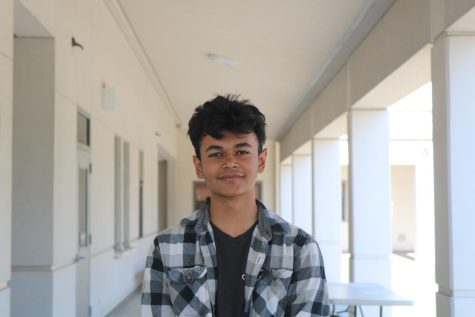
Senior Rohan Iyer is a staff writer for the California High school newspaper. This is the second time he has taken part in The Californian paper as a writer,...
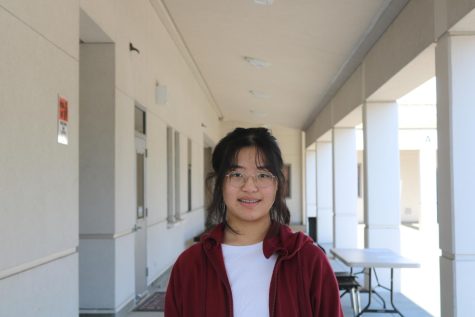
Senior Zhaoyi (Judy) Luo is the Graphics Editors for The Californian. She joined newspaper as a freelance artist in junior year and now she draws covers...
